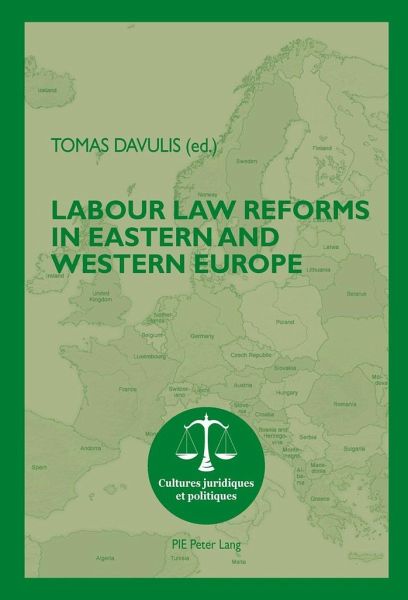
Labour Law Reforms in Eastern and Western Europe
Versandkostenfrei!
Versandfertig in 6-10 Tagen
85,75 €
inkl. MwSt.
Weitere Ausgaben:

PAYBACK Punkte
0 °P sammeln!
Recent years in Europe have been marked by efforts to introduce changes in labour law in order to boost employment, reduce labour costs and increase flexibility of national labour markets. The increased international competition has led to major labour law reforms in some European countries but the majority of national developments still indicate a rather limited reformist approach. Evolutionary rather than revolutionary efforts were initiated to balance the wage-setting mechanisms and to soften the dismissal law protection to create room for flexibility, to increase employment by promoting at...
Recent years in Europe have been marked by efforts to introduce changes in labour law in order to boost employment, reduce labour costs and increase flexibility of national labour markets. The increased international competition has led to major labour law reforms in some European countries but the majority of national developments still indicate a rather limited reformist approach. Evolutionary rather than revolutionary efforts were initiated to balance the wage-setting mechanisms and to soften the dismissal law protection to create room for flexibility, to increase employment by promoting atypical forms of employment, to accommodate legal regulations to technological advances and the new types of economy. Accompanying social security measures intended to improve the efficiency of active labour market policies.
The current selection of academic contributions intends to provide an overview of recent developments in the legal regulation of labour markets in Eastern and Western European countries. The authors' contributions could not cover all the aspects of the current state of recent reformist efforts on the labour markets. However, by picturing separate developments in different European countries, it intends to assist in identifying regional similarities. Furthermore, it provides opportunities for exchange of ideas, experiences and practices for shaping labour law both at European and national level.
The current selection of academic contributions intends to provide an overview of recent developments in the legal regulation of labour markets in Eastern and Western European countries. The authors' contributions could not cover all the aspects of the current state of recent reformist efforts on the labour markets. However, by picturing separate developments in different European countries, it intends to assist in identifying regional similarities. Furthermore, it provides opportunities for exchange of ideas, experiences and practices for shaping labour law both at European and national level.













